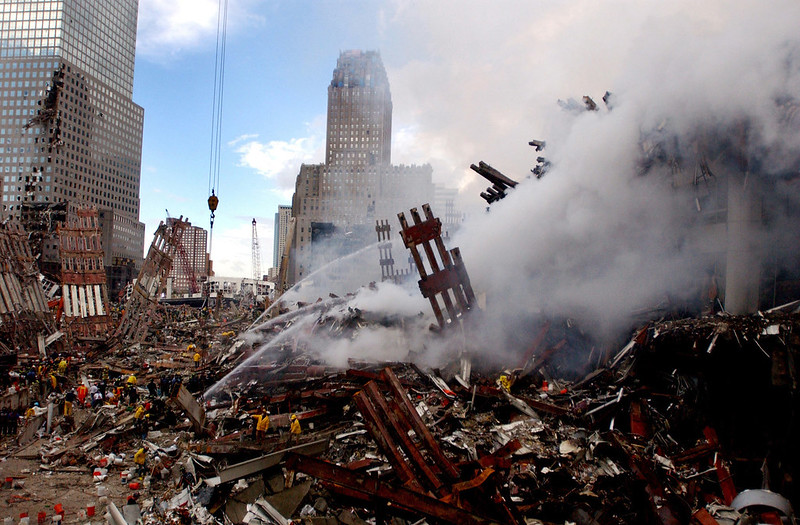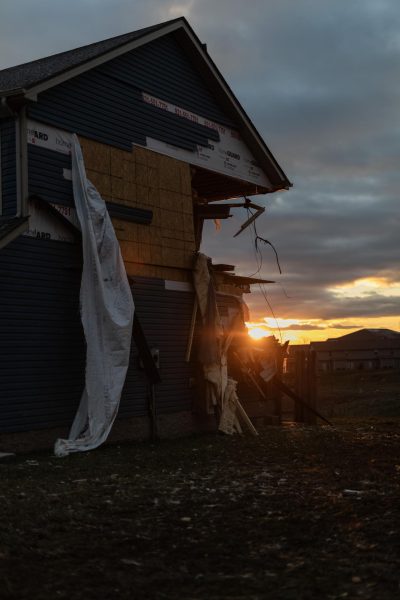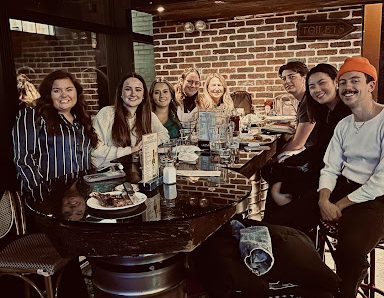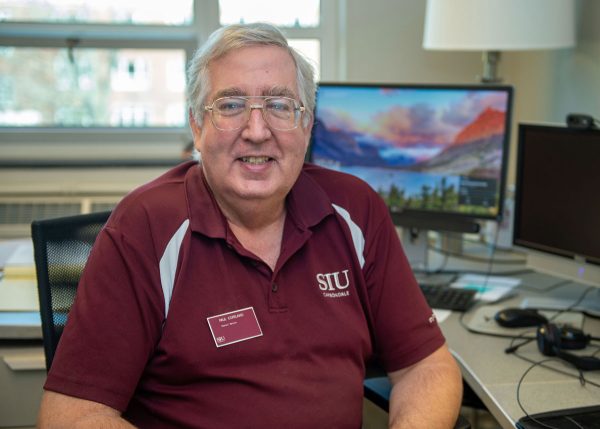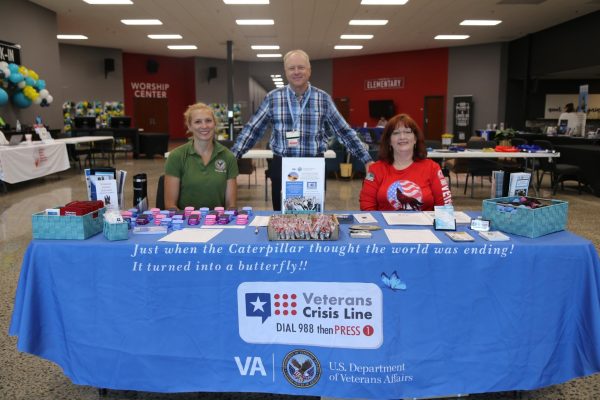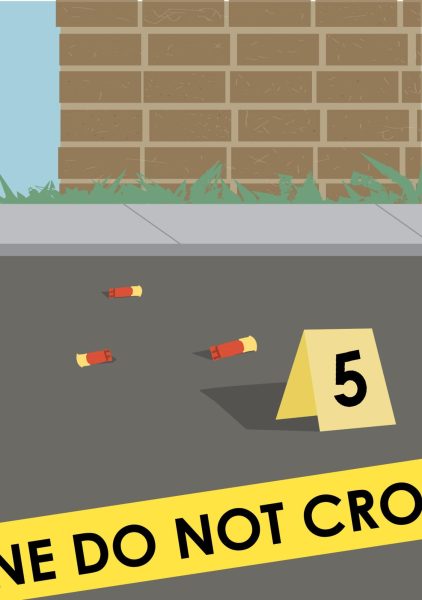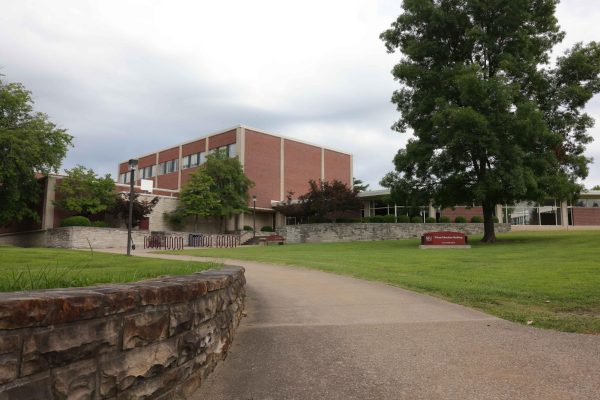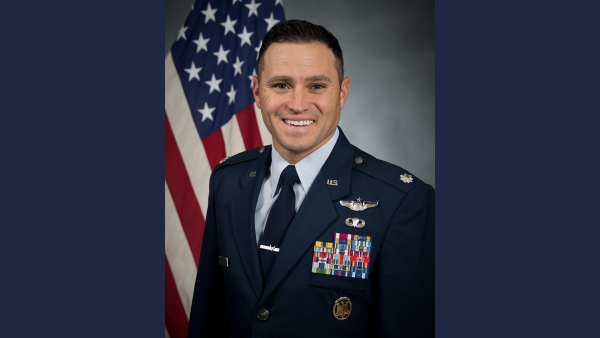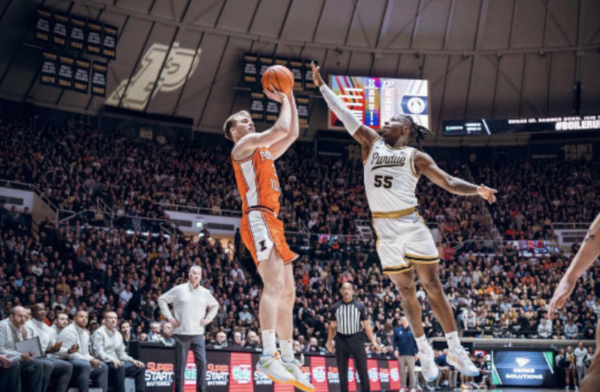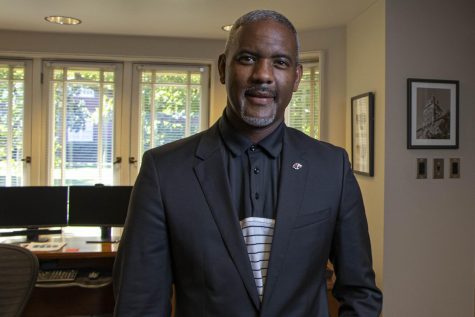9/11: The domino effect lingers 20 years later
Photographed by US Department of Defense
Photo of the wreckage of the twin towers which fell after the attacks on 9/11.
The toxic dust that fell as the World Trade Center towers collapsed 20 years ago, continues to cast a dark shadow over America. 9/11 created a domino effect that would transform American culture, and society for decades to come. On the 20th anniversary of the attacks on the twin towers the Daily Egyptian worked alongside River Region, to tell the stories of those who lived through the attacks, reported the news and those who would grow up in a world shaped by this traumatic event.
Lindsay King, assistant lecturer at the school of journalism at SIUC, was a junior at the University of Kentucky when two planes hit the trade center on September 11. She was watching the “Today Show” when the second plane hit. As a local NBC affiliate, King had to deliver information on the attack to the public as swiftly as possible. It was the first time people reported without confirming the information or source.
“We were like sponges, we wanted to absorb everything that we were hearing. We had no idea what was going on. In this country, we’ve never experienced anything like that. I think the closest thing would probably be Pearl Harbor,” King said.
Advertisement
Peal Harbor caused decades of discrimination against Japanese Americans. 9/11 reshaped the course of history and put a target on the backs of Brown and Muslim people all over the world. The media played a significant role in the way Muslim people were portrayed after the attacks. When the media began to report on the terrorists, the words Muslim, extremist, and terrorist became synonymous.
“That’s so dangerous because in a way, every Muslim was linked to this group … They became attacked because of the people who flew the planes into the towers,” King said. “I think that was the time when you kind of see how dangerous the media can be.”
Sophmore public health student, Dania Abou-Jabal, a hijabi Muslim, was born in November 2001, just a few months after the attack.
Abou-Jabal said the media has perpetuated negative stereotypes of Muslim people.
“The Islamic religion is really a peaceful religion and we are peaceful people. It really is sad to see the media portray Muslims as either being terrorists or women that wear the hijab as being oppressed. It really is just the wrong narrative that is put out to the American people and just the world in general,” Abou-Jabal said.
Growing up in Carbondale, Illinois, Abou-Jabal said she was fortunate to live in a diverse and understanding environment; however, when she and her family left the bubble of safety and acceptance to visit other cities they received a negative reception from the public.
“I have heard multiple comments. I’ve been called a towel head, I’ve been called a terrorist. I’ve been told to go back to my own country, even though I was born and raised here in America,” Abou-Jabal said.
Advertisement*
Annie Hammock, managing editor of the Daily Egyptian, woke up to the tragic news of the attack 20 years ago. At the time of the attack, Hammock was working at CNN, 17 years into her professional TV career.
“There were people in their homes who were able to just sit and take it in. We had to process it and we had to get it on the air and in a way that was going to help those people at home, do their processing,” Hammock said.
Hammock and her coworkers repeatedly consumed traumatic content in order to deliver the news to the public.
“Some of the images were horrific and most notable being the people jumping off the building. I think it may have run once or twice on air before the executivessaid ‘no there’s no purpose to it,’” Hammock said. “These were real people who were jumping to their deaths, fearing a much worse fate with being burned to death. They had two choices, die in a horrible fall or they can be burned to death. To get into their heads was difficult.”
Although the station decided to stop showing the horrific videos, the images have been burned into Hammock’s mind. Hammock said many journalists did not realize that they were developing PTSD from the repetitive viewing of these videos. 9/11 was the most difficult event she covered as a journalist- King was diagnosed with PTSD years after the attacks occured, linked to her coverage of the event.
“How do you stay detached and objective when planes are crashing into buildings that helped define the best of what we are (innovative, bold, welcoming of other cultures). How do you write, edit, produce, report, any of it, when two iconic towers crash to the ground and fear clings to you like the dust they became? You. Just. Do,” Hammock said in a blog post years later.
See more 9/11: Ready for our close-ups?
, interim director for the School of Media Arts, lived in Manhattan, New York at the time of the attacks. A single father, Spahr lived with his then 5 year-old son in the lower east side.
“I jumped in a cab because I was worried I was going to be late for work,” Spahr said. “I noticed a lot of people looking south as I was headed north pointing up in the sky … I see a puff of smoke above the World Trade Center.”
Spahr didn’t think too much of the attack until one of his coworkers said a second plane hit the World Trade Center. When recounting the events that occurred that day Spahr broke down in tears. Spahr said there was no information about the attack.
“At that point all the information you got was on the street because all of the antennas were in the World Trade Center,” Spahr cried “The towers were still standing, there was a big hole and F16s circling.”
As soon as Spahr heard the news of the second plane crash, he got a cab to go to get his son. As the F16s approached Spahr thought they were going to attack the capital.
“My son’s five at the time, and he’s like ‘Dad why are you squeezing my hand?’ I grabbed him and we ran across Sixth Avenue. The planes were really low so I thought they were gonna swoop in and bomb us,” Spahr said.
With no landlines, or TV, information was scarce in New York but the fear began to mount.
“The rest of the world was experiencing it through a screen and I didn’t see any of it on a screen until late at night,” Spahr said.
Spahr said the atmosphere in New York changed that day. Generation Z has developed under a heightened state of fear and tragedy.
“We’re just now leaving Afghanistan. So the United States’ longest wars ended just a couple days ago … the soldiers who started to go fight after 911, their kids are now enlisted in fighting. That’s a lifetime of war,”Spahr said.
Spahr said the results of our divisiveness creates a fear of “others”.
“We have militarized ourselves, we’re looking inward with the same intensity that 911 caused us to go out and invade a country that had nothing to do with 911,” Spahr said.
Salwa Ahmed, senior social work student, at SIUC. Ahmed 21, was only 1 years old when the 9/11 attacks occured, yet the reverberating affects of 9/11 continue to impact her as a Muslim Indian American today.
“I grew up in Glen Ellyn, and that’s a predominantly white area so I grew up thinking … Muslims were the bad guys, Mulims are terrorists. I always felt like I had to defend myself … I shouldn’t have to defend myself, it should be a given that not everyone is a bad person based on their religion,” Ahmed said.
Ahmed recounted an instance when a preschool teacher called the FBI to her family’s home. When her younger brother was in preschool he jokingly said ‘oh I threw a grenade’ in conversation with his friends about the video game Halo.
“She overheard the conversation and actually called the FBI on us. I remember it so vividly … I remember I answered the door when they came to our house and I was just like, ‘What’s going on? Who are you guys? Why are you here?’,” Ahmed said.
Although Ahmed said she experiences several similar instances throughout her childhood, this was not an isolated incident but instead a footnote in a series of microagressions and discrimination to come.
“I noticed my dad always gets pulled aside at the airport and gets a little extra screening done, they ask for his ID when they don’t ask for anyone else’s,” Ahmed said.
She said discrimination is an “almost routine” part of her daily life as a Muslim and as a Brown woman.
In the Black community parents sit their children down for “the talk” – a cautionary conversation that prepares Black American children for the racism and discrimination they will endure. According to Ahmed and Abou-Jabal a similar version of “the talk” is given to Muslim American children to protect them from harms way because of their religous beliefs.
“A lot of Muslim parents tell their sons, don’t grow your beard long, don’t talk about Muslims or Islam too much in public … don’t talk about like your religion too much,” Ahmed said.
Jabal encourages people to make Muslim friends and to educate themselves before passing judgement on a community of peaceful people.
“I really hope that the American people could just talk to a person within the religion of Islam, and really just have a one on one, open conversation, even if it turns into a debate,” Jabal said.
9/11 caused two separate national tragedies that are still impacting American society today. The pain from that day lives on in those who experienced it, documented it, and the innocent who were – and are – targeted as a result of it. Tragedies have a way of unifying people with empathy and compassion, but they can also ignite a fire of hate that divides us. As we reflect on the last 20 years since this horrific event occurred we continue to learn how to restore our humanity and empathy for one another.
Editor in Chief Oreoluwa Ojewuyi can be reached at [email protected] or on twitter @odojewuyi.
To stay up to date with all your southern Illinois news, follow the Daily Egyptian on Facebook and Twitter.
Advertisement



